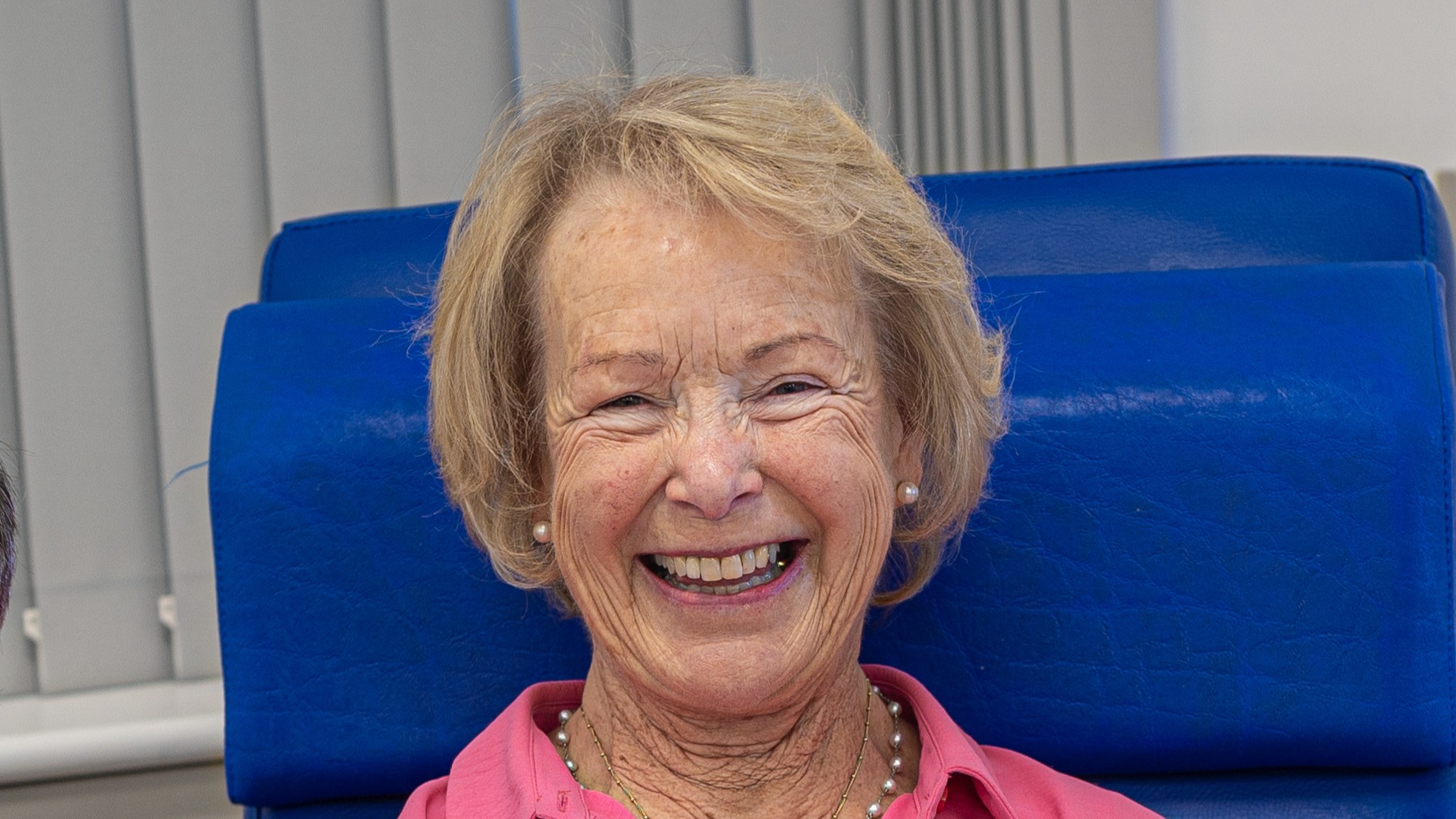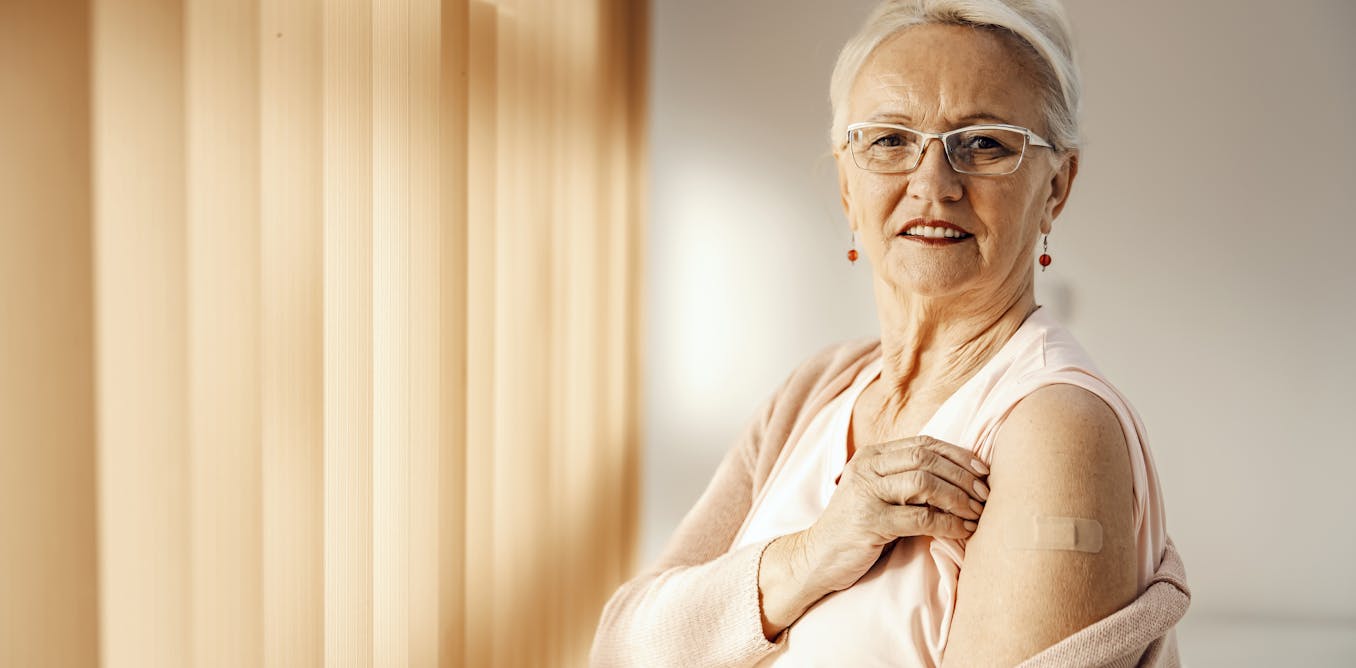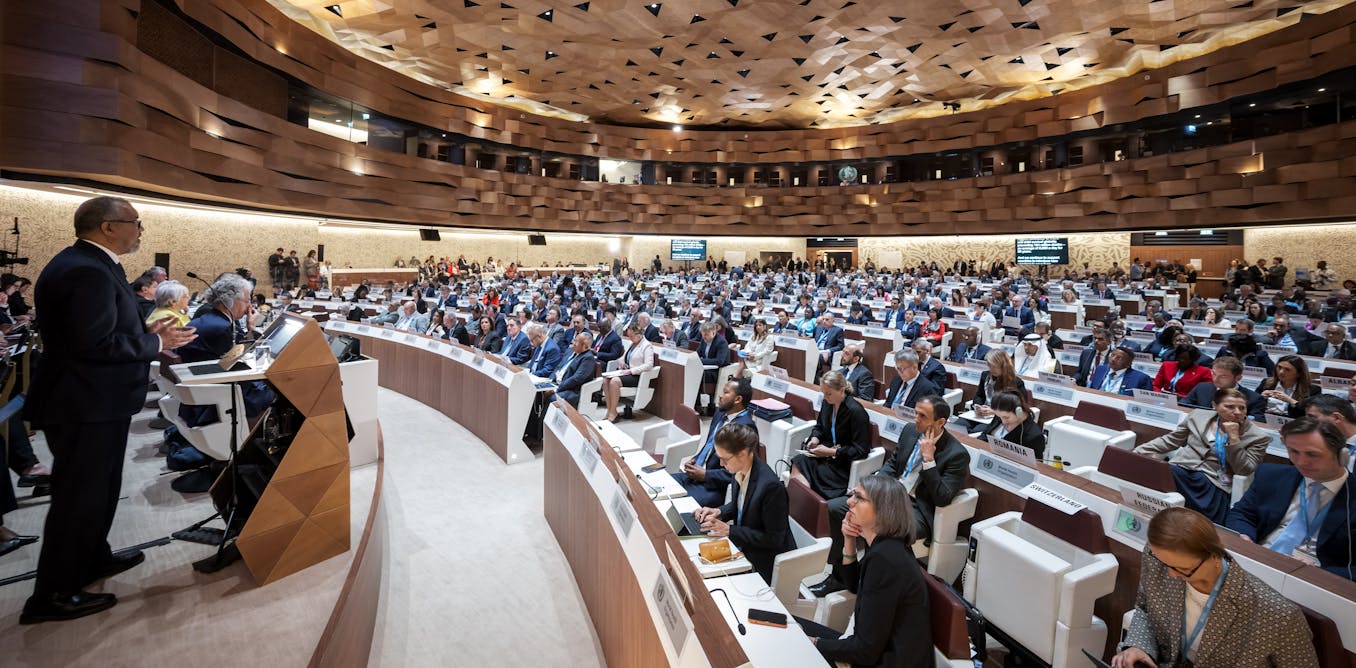A GRANNY who has been treated with eye drops made of blood says she has been saved from a ‘lifetime of pain’.
Carolyn Frost, from Thornbury in Gloucestershire, has severe dry eye syndrome, which means she doesn’t naturally produce enough tears to keep her eyes moist, affecting her ability to see.
3

3

3
Describing her symptoms as “horrible” and disabling”, the grandmother-of-seven, who lives with her husband Thomas, 78, has battled with the condition since she was a teenager.
She would often “walk right past” people in the street because of her distorted and blurred vision and an itchy, burning sensation in her eyes.
Carolyn, a mother-of-three, did find temporary relief with treatments like steroids in the past.
But a year ago, she began using eye drops provided by NHS Blood and Transplant (NHSBT).
The eye drops are made from the plasma in blood, a yellow-coloured substance that makes up about 55 per cent of blood and contains antibodies.
The blood plasma helped reduce Carolyn’s painful symptoms and have enabled her to see her children and grandchildren properly.
The treatment has given her “another chance” at life.
Carolyn recently met the two donors whose blood was used to make her eye drops – Martin Wilson, 64, a retired Rolls-Royce engineer from Westbury-on-Trym, in Bristol, and Martin Darwin, 57, a renewable energy consultant from Newton-le-Willows, Merseyside.
She told PA Real Life: “The new eye drops are so soothing…it’s amazing that they can use blood to make them.
“I am just so grateful to the donors that they are giving somebody like me another chance and some comfort and making my life less uncomfortable.”
Describing meeting the donors, she added: “You never usually get to meet your donors, but it was amazing and humbling to meet them and say thank you.
“It has been a long journey with my eyes, but the eye drops are a blessing.”
Carolyn’s symptoms began when she was 15 years old – red eyes, scratchy and burning sensations, and blurred vision.
She explained: “I can feel it burning hot sometimes. My eyes get hot, red and uncomfortable.
“There’s a scratchy feeling and my vision is quite blurred. It becomes painful to use your eyes.
“It’s quite disabling. I really struggle to see, I am not allowed to drive, and I find it difficult to garden.”
Mild to moderate cases of dry eye syndrome can usually be successfully treated using over-the-counter artificial tear drops, according to Moorfields Eye Hospital.
Eye ointment can also be used to help lubricate the eyes, but in more severe cases, specialist medication may be required.
Carolyn tried steroids with an amniotic membrane – a biological bandage to heal or replace damaged eye tissue – but these treatments weren’t able to alleviate her symptoms for prolonged periods of time.
A detached retina, which occurred a year ago, made her symptoms worse.
It was then she began using the NHSBT eye drops, which were recommended to her by Omar Elhaddad, a consultant at Bristol Eye Hospital.
My blood has been used for normal donations and research and all sorts of things. This was special but I don’t care what it’s used for as long as it’s used to help someone.
Martin Wilson
The “jelly-like” drops are kept in Carolyn’s fridge at home and made from donated blood – the blood is processed to separate out the serum, which is then diluted with saline.
The blood plasma serum is used as a replacement for tears for people who cannot make their own.
As well as lubricating the eye, it contains growth factors, protein and vitamins, which can help surface eye health and healing.
NHSBT only uses blood from male donors, as plasma from females can contain higher levels of human leukocyte antigen antibodies and, if you transfuse that blood into someone, it can create a transfusion reaction damaging the lungs, which can be life-threatening.
Carolyn said: “Without the drops, my eyes would dry out very quickly. It’s quite wonderful that steps forward like this have been made.”
Using its internal data, NHSBT was able to track down two of the donors whose blood was used to make Carolyn’s eye drops.
Mr Darwin said: “It has been an amazing experience to see the difference that the blood you donate has made and how it has helped.
“It’s great to donate but to actually meet a recipient of your own blood and understand how it has changed their life is incredible.”
Mr Wilson said: “It’s good to give blood but it’s so nice to meet someone that you have helped directly.
“My blood has been used for normal donations and research and all sorts of things. This was special but I don’t care what it’s used for as long as it’s used to help someone.”
Carolyn added: “I’ve had so much help from so many people at the hospital and donors like Martin and Martin. I would just urge people to give blood. I can’t recommend to people enough the difference that it makes.”
To register as a blood donor, visit: blood.co.uk.
NHS urging people to give blood as national shortage declared
Find out if you’re able to give blood for the first time
The NHS has issued a national alert over shortages of certain blood types. Stocks of O negative and O positive blood are at unprecedented low levels.
More blood donors are being urged to come forward – O group donors are being asked to urgently book and attend appointments.
Who can give blood
To donate blood you need to:
- Be generally fit and well
- Be aged between 17 and 65
- Weigh between 7 stone 12 lbs (50kg) and 25 stone (158kg)
- Have suitable veins (these will be checked before you donate)
- Meet all donor eligibility criteria (also checked with you before you donate)
You won’t be able to donate if you:
- Have had most types of cancer
- Have some heart conditions
- Have received blood, platelets, plasma or any other blood products after 1 January 1980
- Have tested positive for HIV
- Have had an organ transplant
- Are a hepatitis B carrier
- Are a hepatitis C carrier
- Have injected non-prescribed drugs including body-building and injectable tanning agents. If a doctor prescribed the drugs, you may be able to give.
There are certain circumstances where you may ave to wait to donate blood. To check these and to find where your nearest donation venue is, visit the NHS Blood and Transplant Give Blood website.



